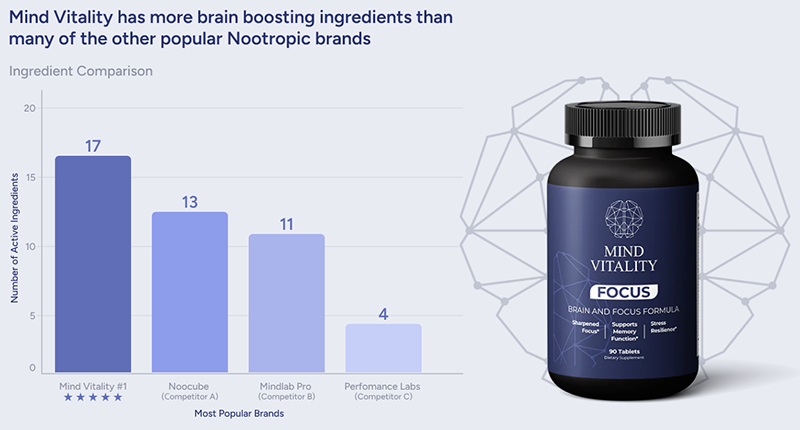
In our quest to understand the secrets of maintaining a sharp and resilient mind, especially as we age, we often turn to the wisdom embedded in traditional non-Western diets. These dietary patterns, honed over centuries, stand as testament to the symbiotic relationship between what we eat and how our brains function and age.
But why do these ancient diets, often overshadowed by modern eating habits, warrant our attention in the context of cognitive decline? The answer lies not just in their exotic ingredients or time-honored preparation methods, but in their fundamental approach to nutrition and wellness. From the heart-healthy fats of the Mediterranean diet to the antioxidant-rich staples of the Japanese kitchen, these diets offer a mosaic of nutrients that play a crucial role in brain health.
Contents
Understanding Brain Aging
The process of brain aging is as natural as the passage of time itself, yet its implications for our cognitive well-being are profound and complex. Before getting into the specifics of how traditional non-Western diets influence this process, it is essential to establish a fundamental understanding of what happens to our brains as we age.
The Aging Brain: Biological Changes
The brain, a marvel of biological engineering, undergoes significant changes as we age. Neurons, the building blocks of our nervous system, may decrease in number and efficiency. This reduction impacts the brain’s plasticity – its ability to form new connections and adapt to changes. Additionally, age-related changes in blood flow and inflammation can affect brain health and function. Understanding these transformations is crucial in appreciating how diet can play a role in mitigating some of these aging effects.
Factors Influencing Cognitive Decline
Cognitive decline, a concern for many as they age, is influenced by a variety of factors. Genetics certainly play a role, but lifestyle choices, including physical activity, mental stimulation, and diet, are equally significant. Chronic conditions such as diabetes or heart disease also have a profound impact on cognitive health. This multifactorial nature of brain aging underscores the importance of a holistic approach to maintaining cognitive vitality, one that includes consideration of dietary habits.
The Role of Nutrition in Brain Aging
Nutrition emerges as a key player in the arena of brain health. The brain requires a constant supply of nutrients to function optimally. Deficiencies in essential vitamins and minerals, or an imbalance in dietary components, can accelerate cognitive decline. Conversely, a diet rich in antioxidants, healthy fats, and other brain-boosting nutrients can provide a strong defense against the effects of aging [1].

Traditional Non-Western Diets and Their Characteristics
Dietary habits around the world vary significantly, with each region offering a unique tapestry of flavors, ingredients, and nutritional profiles. Traditional non-Western diets, in particular, are renowned for their diverse and wholesome characteristics. These diets, deeply rooted in cultural practices and local resources, provide intriguing insights into how our eating habits can influence brain health, particularly in the context of aging.
Mediterranean Diet: Overview and Key Components
The Mediterranean diet, originating from countries surrounding the Mediterranean Sea, is often celebrated for its health benefits. Characterized by a high consumption of fruits, vegetables, whole grains, legumes, and olive oil, it is also known for moderate intake of fish and poultry, and minimal consumption of red meat. Rich in healthy fats, particularly omega-3 fatty acids from olive oil and seafood, this diet has been linked to reduced inflammation and improved brain function.
Traditional Japanese Diet: Ingredients and Eating Habits
Across the globe in Japan, the traditional diet offers a stark contrast with its emphasis on seafood, rice, fermented foods, soy products, and an abundance of fresh vegetables. The Japanese diet is low in saturated fats and high in nutrients known to promote brain health, such as omega-3 fatty acids from fish and antioxidants from green tea and vegetables. Portion control and a focus on the freshness and seasonality of food also play significant roles in this diet [2].
The Indian Subcontinent Diet: Spices and Plant-Based Focus
The diets of the Indian subcontinent are notable for their rich use of spices and predominantly plant-based ingredients. Turmeric, ginger, and other spices not only add flavor but also possess anti-inflammatory and antioxidant properties. Staples like lentils, chickpeas, and a variety of vegetables provide essential nutrients and fiber. This diet’s emphasis on vegetarianism aligns with current research suggesting the brain health benefits of plant-based foods.
African Diets: Diversity and Nutritional Value
African diets, diverse as the continent itself, often include a variety of whole grains, beans, root vegetables, and leafy greens. These ingredients are rich in vitamins, minerals, and fiber, essential for brain health. In many African diets, meat is used sparingly, as a flavor enhancer rather than the main component, which results in a diet low in saturated fats but high in beneficial nutrients.
Comparison With Western Dietary Patterns
In contrast to these traditional diets, Western dietary patterns often involve higher intakes of processed foods, sugars, and saturated fats. The differences in dietary composition between traditional non-Western diets and Western diets highlight the potential impact of food choices on cognitive health. The natural, nutrient-rich profiles of these traditional diets suggest a model for dietary habits that could support brain health and mitigate age-related cognitive decline [3].
Scientific Evidence Linking Diet to Brain Health
The intriguing relationship between diet and cognitive health is not merely anecdotal or based on traditional wisdom. In recent years, a growing body of scientific research has begun to shed light on this connection, offering compelling evidence that what we eat significantly impacts our brain health and cognitive aging.
Epidemiological Studies on Diet and Cognitive Function
Numerous epidemiological studies have investigated the effects of diet on cognitive function. For instance, research on populations adhering to the Mediterranean diet has consistently shown a lower incidence of cognitive decline and a reduced risk of developing Alzheimer’s disease. Similarly, studies focusing on the traditional Japanese diet have found correlations between high fish consumption and lower rates of mental decline. These studies, by observing large groups of people over extended periods, provide valuable insights into the long-term effects of dietary patterns on brain health.
Nutritional Components Beneficial for the Brain
Delving deeper into the specifics, scientific research has identified several key nutritional components beneficial for the brain. Omega-3 fatty acids, found abundantly in fish and certain plant oils, are known for their anti-inflammatory properties and their role in maintaining brain cell membrane integrity. Antioxidants, present in fruits, vegetables, and spices like turmeric, protect brain cells from oxidative stress. B vitamins, found in whole grains and legumes, are essential for brain function and in maintaining nerve health. These studies highlight how the intricate composition of traditional diets contributes to cognitive wellness [4].
Case Studies: Populations with Lower Rates of Cognitive Decline
Case studies of specific populations offer a more focused perspective. For instance, research on certain Mediterranean and Asian populations, where traditional diets are prevalent, has shown remarkably lower rates of cognitive decline and age-related neurological diseases compared to Western populations. These case studies not only reinforce the findings of broader epidemiological research but also provide a real-world context to the benefits of traditional dietary habits.

Key Nutrients and Their Impact on Brain Aging
The connection between diet and brain health can be significantly attributed to specific nutrients that are essential for cognitive function and longevity. Understanding these key nutrients and how they impact brain aging is crucial for developing dietary strategies that support cognitive health throughout life.
Omega-3 Fatty Acids: Sources and Benefits
Omega-3 fatty acids, particularly EPA (eicosapentaenoic acid) and DHA (docosahexaenoic acid), play a vital role in brain health. These fatty acids, abundant in fatty fish like salmon, mackerel, and sardines, as well as in flaxseeds and walnuts, are essential for maintaining the fluidity of brain cell membranes. They also exhibit anti-inflammatory properties that may protect against brain aging and cognitive decline. Research has consistently shown that a diet rich in omega-3s is linked to a lower risk of cognitive decline and neurodegenerative diseases.
Antioxidants: Types and Their Role in Brain Health
Antioxidants are compounds that help neutralize harmful free radicals in the body, reducing oxidative stress – a key factor in brain aging. Vitamins C and E, found in fruits and vegetables, are potent antioxidants. Other compounds like flavonoids and carotenoids, present in berries, leafy greens, and brightly colored fruits and vegetables, also offer protective benefits. The regular consumption of these antioxidant-rich foods has been associated with better cognitive performance and a reduced risk of cognitive decline [5].
Vitamins and Minerals: Essential for Cognitive Function
Several vitamins and minerals are critical for brain function. B vitamins, particularly B6, B12, and folate, found in whole grains, legumes, and leafy greens, play key roles in producing brain chemicals and maintaining nerve health. Iron, zinc, and magnesium, found in nuts, seeds, and meat, are essential for nerve signal transmission and brain development. Deficiencies in these nutrients can lead to cognitive impairments, further emphasizing the importance of a balanced diet for brain health.
The Importance of Dietary Fiber
Dietary fiber, often overlooked in discussions about brain health, has significant implications for cognitive function. High-fiber foods like whole grains, fruits, and vegetables help maintain gut health, which is closely linked to brain health through the gut-brain axis. A healthy gut microbiome can reduce inflammation and oxidative stress, both of which are detrimental to cognitive health.
References
[1] What Do We Know About Diet and Prevention of Alzheimer’s Disease?
[2] Nutrition for the ageing brain: Towards evidence for an optimal diet
[3] Mediterranean and MIND diets reduced signs of Alzheimer’s in brain tissue, study finds
[4] Traditional Non-Western Diets
[5] Western Diet: Implications for Brain Function and Behavior

